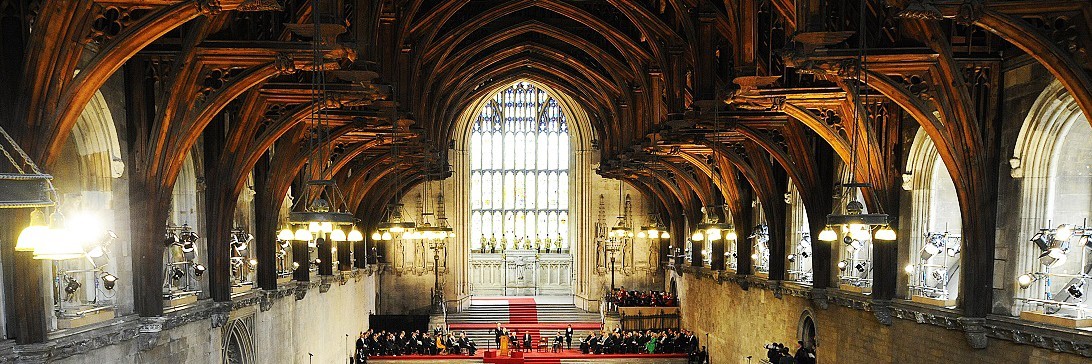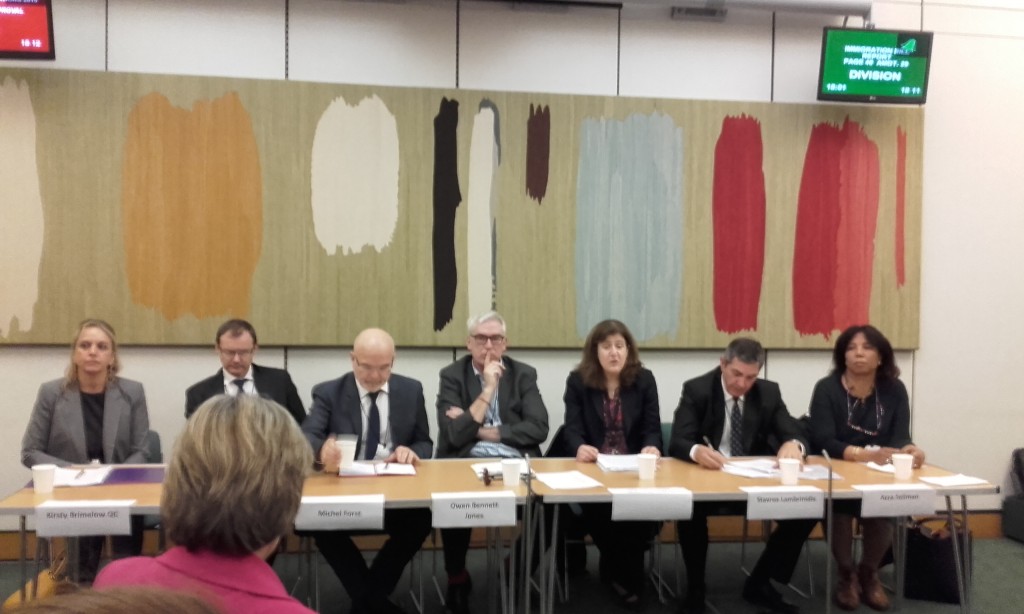This event was organised by the All-Party Parliamentary Human Rights Group (PHRG), Amnesty International UK, the Human Rights and Social Justice Institute at London Metropolitan University and Peace Brigades International UK to highlight and discuss issues concerning the protection of human rights defenders worldwide.
The PHRG would like to thank Owen Bennett Jones for facilitating the event and Dominic Grieve QC MP, PHRG Joint Vice-Chair for hosting (“DG”).
The speakers were:
- Michel Forst, UN Special Rapporteur on the Situation of Human Rights Defenders (“MF”);
- Stavros Lambrinidis, EU Special Representative for Human Rights (“SL”);
- Rob Fenn, Head, Human Rights and Democracy Department, FCO (“RF”);
- Kirsty Brimelow QC, Chair, Bar Human Rights Committee (“KB”);
- Azza Soliman, Director, Centre for Egyptian Women’s Legal Assistance (“AS”);
The main points raised by the speakers include:
- The situation for human rights defenders (HRDs) in Egypt is very dangerous and there is no space left for NGOs to function. HRDs are accused of being spies and terrorists. Despite this she is hopeful: “I have no choice but to have hope though. I will live in Egypt and fight in Egypt.” (AS)
- Naming and shaming is one of the main functions of UN Special Rapporteurs, but the decision on whether to raise a HRD’s case publicly or privately must be done on a case by case basis. (MF)
- For the EU, joining hands with Governments is also important. If the EU has a good relationship with a state, that gives the EU leverage in relation to human rights. (SL)
- Legal training for HRDs can help promote access to Courts, use of regional mechanisms and strategic advocacy, for example on corruption issues. (KB)
- Progress on human rights is incremental and requires sustained peer group pressure. The UK should lead by example as it will continue to have more leverage if it champions human rights. (DG)
- An important role for Parliamentarians is to intervene bilaterally where damaging legislation is being passed. Repressive laws are copied by other states, for example, the Foreign Agents Law. (MF)
- Parliament’s role in foreign policy may not be decisive but it does have weight. Through visits and interventions Parliamentarians can effectively influence human rights in other states. (SL)
- What undermines human rights more than anything else is when messages aren’t consistent or mainstreamed by Governments. (SL)
- When politicians denigrate human rights, this can come back to haunt them. In the UK, we need to reclaim the human rights language. (KB)
- In the next FCO Annual Human Rights Report, the terminology will be changed from “Countries of Concern” to “Human Rights Priority Countries”. (RF)
The PHRG would like to thank the UN Special Rapporteur for his visit to the UK Parliament and looks forward to keeping in touch during his time in office.
We continue to work extensively with HRDs from around the world in order to highlight their causes and press Governments to better protect them.


